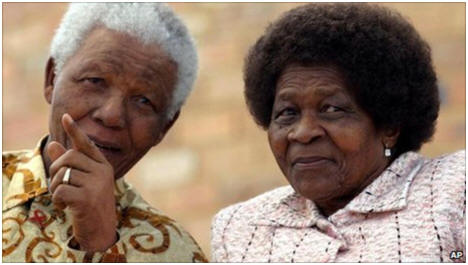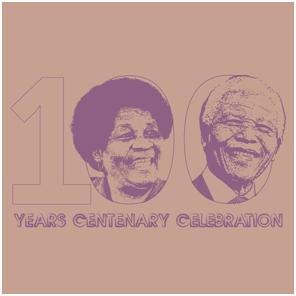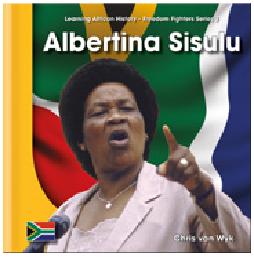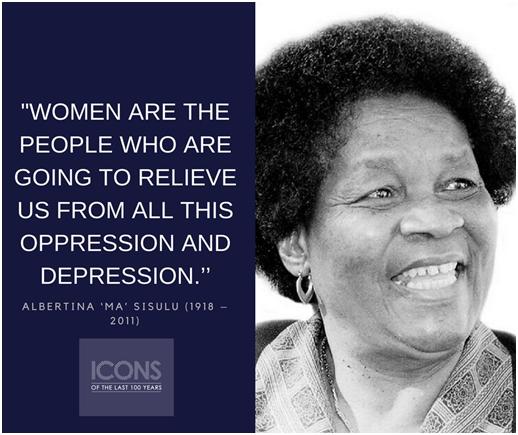|

¡@
July 2018, South
Africa was celebrating the centenary birthday of the first democratically
elected President of South Africa.
Madiba as famously
known ,was a humanist who was not only one of the former struggle heroes
that fought for the freedom of all South Africans, but was regarded by the
international community as a world leader who advocated for unity and
tolerance, among many other commendable commitments that he was well known
for. As we celebrate what would have been the former president¡¦s 100th
birthday, we remember his work through the theme: ¡§Be The Legacy¡¨.
¡@

Happy 100 Birthday
Mama Albertina Sisulu

¡@
On 9 August the
country commemorated the 1956 Women¡¦s March under the theme: ¡§100 Years
of Albertina Sisulu, Woman of Fortitude: Women United in Moving South Africa
Forward¡¨.
The iconic march
saw 20 000 women march to the Union Building to protest against the
discriminatory pass laws. This march has been celebrated since 1995 as
Women¡¦s Day to recognise the important role political activism by women
played during the struggle for liberation against colonisation and
apartheid.
The Mama Sisulu¡¦s
centenary celebration formed a core thrust of Women¡¦s Month which is August
as we paid tribute to her and the many women leaders of her generation. Mama
Sisulu was one of the organisers of the anti-pass Women¡¦s March in 1956 and
played a key role in its planning.
21 October 2018,
South Africa and the world celebrate centenary birthday of a greatest leader
who fought so gallantly against Apartheid and all forms of discrimination
which led to creation of a non-racial, non-sexist democratic South Africa,
united in its diversity.
¡@

¡@
She epitomises the
saying: ¡§When you strike a woman, you strike a rock.¡¨ In the 80s she
co-founded the United Democratic Front which joined the multitude of
anti-apartheid groups under one umbrella. She was elected one of its
co-presidents from her jail cell.
The Bantu Women's
League was the first women's organisation in South Africa. It was started in
1918 by Dr Charlotte Maxeke to spearhead protests such as the one against
the carrying of passes by black women.
The spirit of 1956
and the formation of the Bantu Women¡¦s League inspire women today who face
challenges such as gender-based violence and economic emancipation for
women.
¡@
¡§There can be no
greater gift than that of giving one¡¦s time and energy to helping others
without expecting anything in return.¡¨ Nelson Mandela

¡@
Albertina Sisulu
was a political activist and nurse and one of the most important leaders of
anti-Apartheid resistance in South Africa. She is often referred to as the
`Mother of the Nation¡¦. She acted on her ideal of human rights throughout
her life, assisted by her husband and fellow activist, the late Walter
Sisulu (1912-2003).
With the help of
her activist husband Walter, she attended the first conference of the ANC
Youth League where Albertina Sisulu was the only women present. In 1948 she
joined the ANC Women¡¦s League and in the 1950s she began to assume a
leadership role ¡V both in the ANC and in the Federation of South African
Women (FEDSAW). She was one of the organizers of the historic anti-pass
Women¡¦s March in 1956 and opposed inferior `Bantu¡¦ education. Her home in
Orlando West in Soweto was used as a classroom for alternative education
until a law was passed against it.
Both Albertina and
her husband were jailed several times for their political activities and she
was constantly harassed by the Security Police.
In the 1960s the
ANC moved toward the armed struggle. Umkhonto we Sizwe (the ANC's armed
wing) was formed Walter Sisulu and Nelson Mandela in 1961. Walter was
responsible for framing the organizational units of the National High
Command, Regional Commands, Local Commands and cells.
But in 1963 while
he was awaiting the outcome of an appeal against a 6 year sentence, Walter
decided to forfeit bail, and to going underground. Apartheid Security
Police visited Walter Sisulu's house and found that he had fled. Soon
afterwards they arrested Albertina and her young son Zwelakhe. She became
the first women to be arrested under the General Laws Amendment Act. The
Act gave the police the power to hold suspects in detention for 90 days
without charging them and in Albertina¡¦s case she was placed in solitary
confinement incommunicado for almost two months while the Security Branch
looked for her husband.
During this time
the Security Police taunted her psychologically. She described one of the
cruel forms of torture used by her captors - they would come and tell her
lies. They told her for example that one of her children was seriously ill,
and that her husband was dying. Because Albertina was cut off from all
interaction with the outside world she had no idea that the police had
raided Liliesleaf Farm in Rivonia and had arrested her husband and 16 others
including Nelson Mandela. She only found out three weeks after she was
released from detention.
Just under a year
later the Rivonia trial concluded. Six of the accused were sentenced to life
imprisonment on Robben Island. Walter and Nelson Mandela were some of them.
Note:Denis Goldberg
went to Pretoria Central Prison instead of Robben Island (at that time the
only security wing for white political prisoners in South Africa) where he
served 22 years.
As Walter and his
co-accused left the courtroom, Albertina Sisulu, some ANC Women¡¦s League
members and other supporters rushed out to form a guard of honour to meet
the men. The court officials turned them away, but they sang ¡¥Nkosi Sikele
i¡¦Afrika¡¦ in Church Square in Pretoria in solidarity and mourning.
For her activism
Sisulu was put in detained and put in solitary confinement again in 1981 and
in 1985. She also suffered bannings and house arrest, but still managed to
keep links between jailed members of the ANC and those in exile.
In 1983 Albertina
was elected co-president of the United Democratic Front (UDF), and in June
1989, the government finally granted her a passport. The following month
she led a delegation of UDF leaders to Europe and the United States. She met
the British Prime Minister, Margaret Thatcher and the American President,
George Bush Snr. In October 1989, the last restrictions on the Sisulu family
were lifted and Walter was released from Robben Island.
In 1994, Albertina
Sisulu served in the first democratically elected Parliament. She and her
husband and son Zwelakhe have won numerous humanitarian awards. On the 2
June 2011 she died at her Linden home in Johannesburg, aged 92.
¡@ |